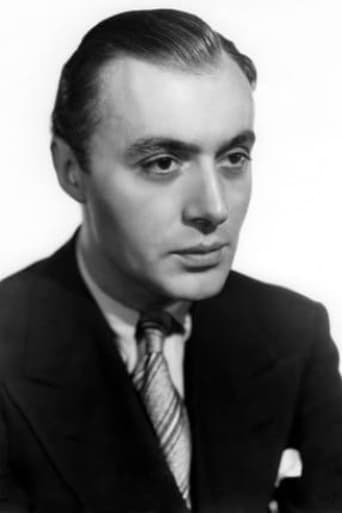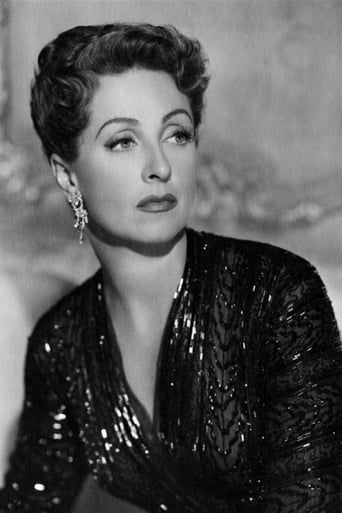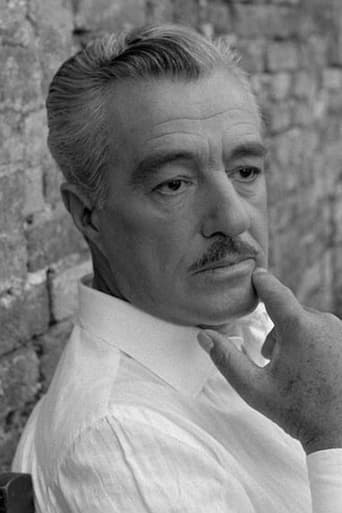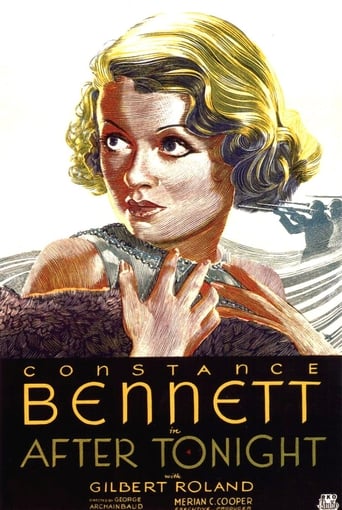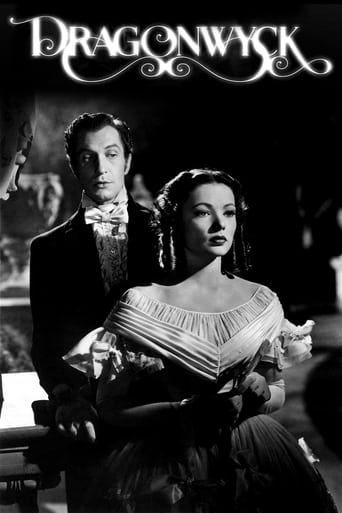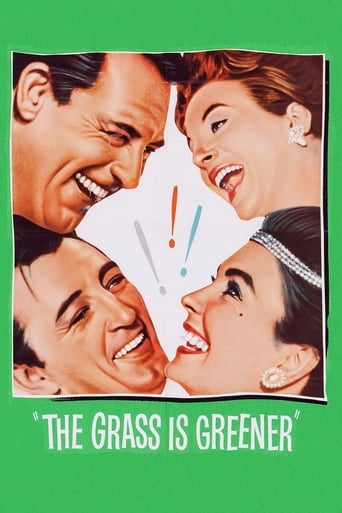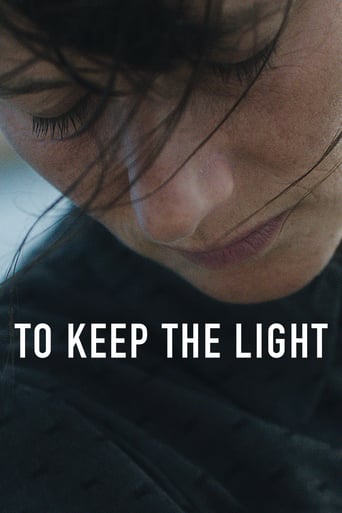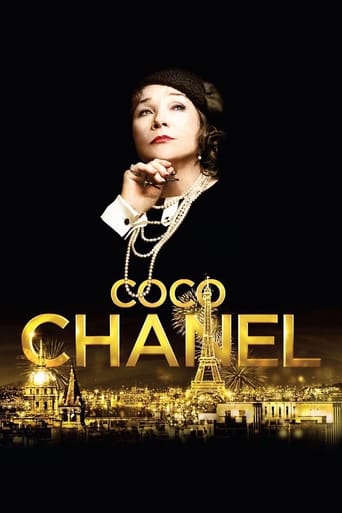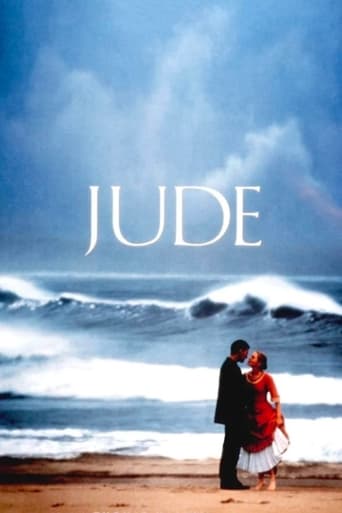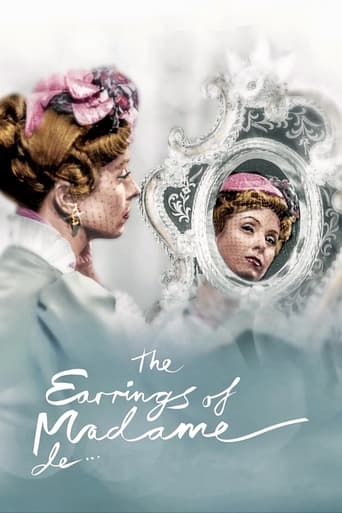
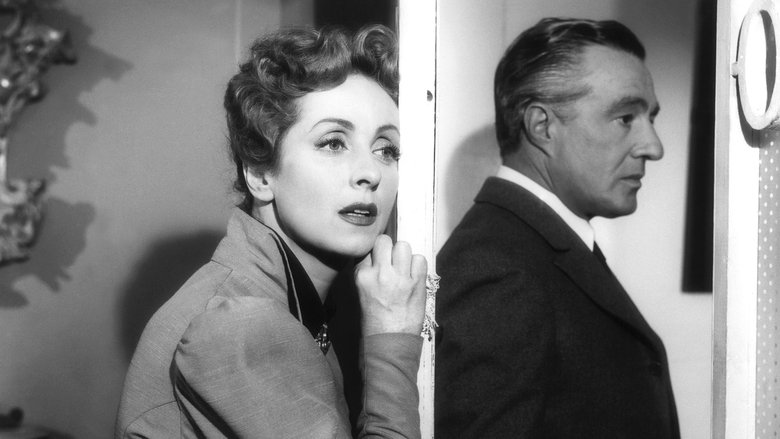
The Earrings of Madame de... (1954)
In France of the late 19th century, the wife of a wealthy general, the Countess Louise, sells the earrings her husband gave her on their wedding day to pay off debts; she claims to have lost them. Her husband quickly learns of the deceit, which is the beginning of many tragic misunderstandings, all involving the earrings, the general, the countess, & her new lover, the Italian Baron Donati.
Watch Trailer
Cast
Similar titles
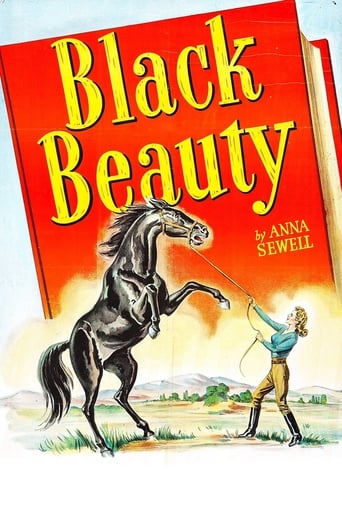
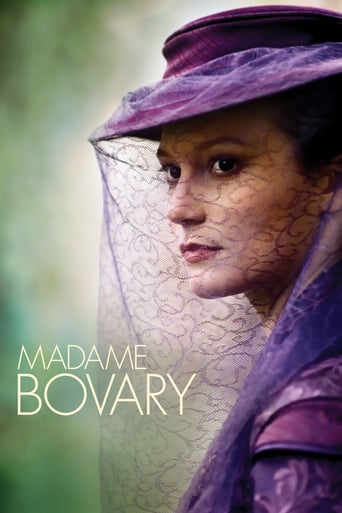
Reviews
Pretty good movie overall. First half was nothing special but it got better as it went along.
Fun premise, good actors, bad writing. This film seemed to have potential at the beginning but it quickly devolves into a trite action film. Ultimately it's very boring.
It's an amazing and heartbreaking story.
It’s not bad or unwatchable but despite the amplitude of the spectacle, the end result is underwhelming.
The journey of a pair of year rings from it's owner Madame De. It was a wedding gift from her husband General Andre. The ear ring was secretly sold by Madame to pay off her debts. It was sold to the same merchant from whom her husband bought it. The merchant informs the General and he buys the ear rings again, but, gives it to his lover. The lover looses it in a gambling at Istanbul. Then it makes a comeback to the Madame. The journey of this "McGuffin" is surrounded by story that includes love and betrayal.A wonderful movie that you will love for it's great making. The actors are wonderful, especially the protagonist Danielle Darrieux. Do not miss this. A must watch. highly recommended.#KiduMovie
The two top gallant gentlemen of the cinema as rivals of its most beautiful woman, both loving her beyond expression in the subtlest possible intrigue of fate as unpredictable as an improvised thriller in which the writer himself has no idea of where the mechanics of destiny will lead him or the puppets of his tale, a labyrinth of love leading everywhere but out of it, filmed with all the refined expertise of perhaps the greatest film director of all, using his constantly moving camera for an overwhelming constant flood of beauty and poetry. This is simply incredible. You can see every film of his again and again forever, since their richness of details and amounting complications of human feelings always expressed by hints and understatements are unfathomably without end. Danielle Darrieux. great already in the 30s and chosen by most cinema lovers as the one outstanding film queen of beauty, is 99 today (1st of May 2016), while her warm beauty dominates her every film forever. Charles Boyer is always reliably excellent and here nobler than ever as the husband, while Vittorio de Sica perhaps makes his most sincere performance as the passionate lover, just as honestly romantic as Charles Boyer's absolute nobility couldn't be more convincing. What about the story, then, actually seemingly superficially a trifle of unavoidable complications resulting from white lies, but the miracle is how this mere miniature of an episodic detail is aggrandized into a love drama of more than epic proportions involving all kinds of storms of a thrilling melodrama. Comedy or tragedy? No, just a human documentary charting an ocean of the complications of being just human. To this comes Oscar Straus' delightful music adorning the masterpiece with a golden frame of tenderness, as if the composer adored the poor victims of this train of complications resulting from the mere trifle of a white lie. Is anyone committing any mistake at all to deserve all this agony of unnecessary self-torture resulting from mere complexes of feelings? No, in all this towering guilt no one is to blame for anything. They are all as innocent as children getting mixed up in a game that goes beyond them. Maybe the tragedy could have been avoided, but then the French are as they are with a penchant for an irrevocably undeniable mentality of Crime Passionnel. There Max Ophuls finds a dead end of his story and film, which perhaps was necessary, or else a story like this could never have ended. In fact, there was a continuation, but Ophuls cut it out, forcing himself to avoid overdoing it. The masterpiece just couldn't be driven further.Still, it's not his best film. But it's a perfect example of the virtuosity of his art.
Charles Boyer and Danielle Darrieux star in this visually stunning film about a wife who wanders from her married life in more ways than one. Aesthetically, it was a masterpiece with all elements just right, the acting, the score, the clothes.The only thing I would elaborate on or have a detailed opinion on is my take on the lead character. Maybe I need a second viewing, but I forget now why she needed to pawn/sell the earrings and why she needed the money. Except for a whim, maybe. Maybe, she just didn't like them, didn't care for them and needed the money for some other extravagant thing. But that would mean right from the beginning she never appreciated her husband and all he gave her. Boyer doted on her with expensive things and an elaborate lifestyle.Then, to hide the fact she sold the earrings he bought for her (which just happened to be her least favorite,) she sent him on a wild goose chase looking for a "lost pair of earrings", which she knew were not lost, during an opera, making him miss it. That really got me. Then, she happens to meet another man, not once by chance, but twice, which must mean that she is meant to be with him.Thus begins the constant guessing game of who's got the "earrings." I think, throughout the whole movie, that Boyer acted most admirably and very much the gentleman. The reader here now knows my feelings, and I have not held much back, if anything. She brought it all on herself and never really did right by Boyer. The ending is inevitable and somewhat predictable, but director Ophuls' treatment is grade A and makes it feel like a Tolstoy or Hugo epic. This is one of those examples where you may not like the characters necessarily or what they do, but you know art when you see it.Most would say I need to see it again to truly appreciate it . I've only seen once just last week, but I still had a strong reaction to it. But I don't think that I would change my feelings about it. At least it inspired this rather heated review. Watch it and see what it's all about. What do you think about Madame de....?
There is little of praise I can add to what others have said. I would like to address the comments of those who don't like the film because they find Louise unworthy of their admiration or sympathy. (There are two threads on the board that raise the same objection, and one quotes a review that calls her a "dick.")Do you feel sympathy for Humbert Humbert? Or for Emma Bovary? Or for Anna Karenina? Or for the Vicomte de Valmont? People are certainly free not to like the directing style of Max Ophuls or the performance styles of his actors. But in the negative reactions to this film, and especially to the character of Louise, I detect a strong whiff of anachronistic response, and an inability to see the film in the context of its time and place, not to mention the characters in the context of their society. It also seems to me that many people have a sort of high school notion that you have to find a character admirable in order to feel sorry for her. Or, for that matter, that you have to feel sympathy for a character in order to be moved by her story.The irony of "Madame de. . ." is that it turns out that the character with the deepest and most constant emotions is the General, who has concealed the depth of his feelings for Louise because it is not the fashion to be in love with one's own wife. He follows the rules; he has mistresses; he doesn't mind Louise's lovers too much as long she too follows the rules. He can't handle it when she strays outside the lines, and it is HIS behavior, not hers, that finally ruins them all.The art of "Madame de..." is that the lush setting and sense of a society that lives on ersatz emotion prepares us to be caught up in the ecstasy of Louise's immolation as the emotions become real. That doesn't mean that the Baron is really the Romeo to her Juliet, or that (artistically speaking) he needs to be. In her review of "The Story of Adèle H.," Pauline Kael comments on what a pathetically inadequate object of obsession Lt. Pinson constitutes. Indeed, late in the film, when Adèle passes him on the street, she doesn't even notice him. The Baron is also a rather bland love object, and it is true that we have little sense of how far their affair has progressed, or if he would even want Louise to leave her husband for him. (That is not, after all, how the game is played.) In the Garbo "Camille," Robert Taylor's Armand is utterly unworthy of her, and I've never seen a version of "Anna Karenina" where the Vronsky seemed worth ruining oneself over--or who, for that matter, really seemed to WANT Anna to leave her husband for him.Louise's tragedy is that her understanding of the game, of which she is a typically petty and only somewhat skilled player (she has, after all, already skirted the edge of ruin by falling deeply into debt), does not prepare her for actual love. Once there she tries to behave well, but events spiral out of the control of all the characters once they are outside of the predictable game. We don't even have to see a redemption in the completeness with which she gives herself up to her love, or her making herself ill over it; her behavior is by and large selfish and unconcerned with the feelings of anyone other than herself. If not a redemption she does have a kind of saving grace: she doesn't ask for pity or understanding (although she does ask for forgiveness), and she does achieve a kind of understanding of herself when she admits near the end that she is hopelessly vain. What makes "Madame de. . ." a great film, though, is how we see the General, Louise, and even the bland Baron become human as they step outside the rules of the game, and the way in which the art of Ophuls prepares us for the exaltation of Louise's destruction. You don't have to pity her to be moved by the emotion of it. You may even find a dreadful comedy in it, as one does with Humbert. Humbert knows how unworthy he is as a figure of tragedy; Valmont realizes with a bitter sense of irony that he has destroyed himself with his own clever pettiness. Louise lacks those levels of insight, as well as their degree of villainy, but her lack of credentials to be a great heroine is itself moving. At the end, when she finally destroys herself, it seems to be, at last, in her first more-or-less-selfless gesture-- ambiguous, though, as everything in Ophuls is. Perhaps Renoir (the allusion to him above being deliberate) could have made these characters more sympathetic, or made us feel more tenderness for unsympathetic characters. (Renoir could make us feel tenderness for a rock.) But Ophuls is not as purely focused on the human heart as Renoir; he always sees the absurd social animal, as well. I think it is more appropriate with Ophuls to have that distancing, as we have when we read "Madame Bovary."
